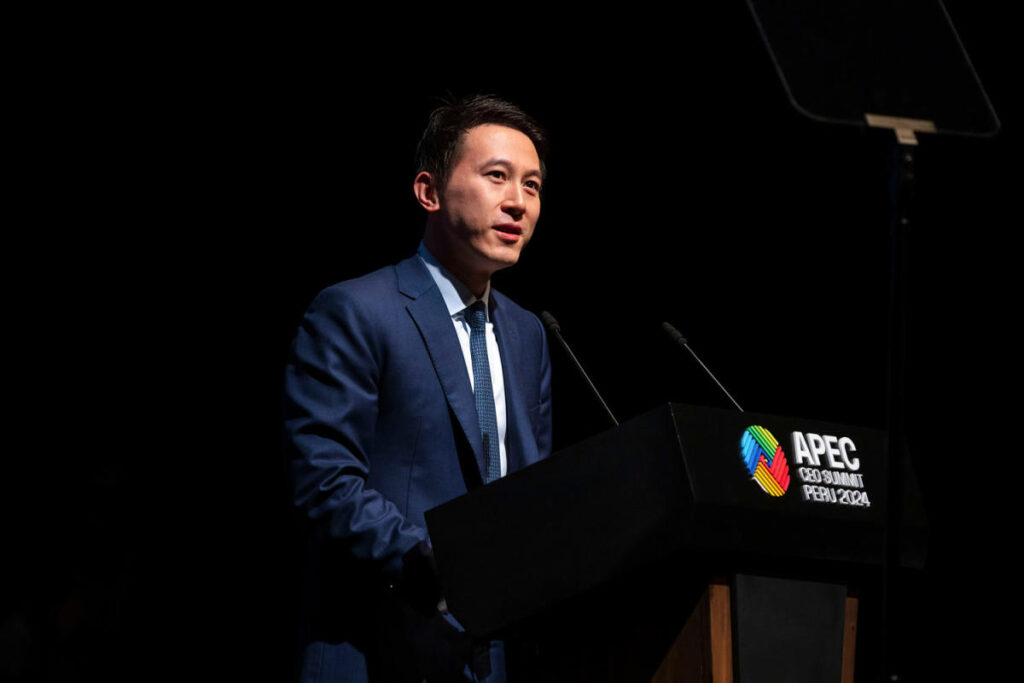President-elect Donald Trump’s impending meeting with TikTok CEO Shou Zi Chew has stirred discussions surrounding the potential ban of the popular video-sharing platform in the United States. Scheduled for Monday at Trump’s Mar-a-Lago resort in Palm Beach, Florida, the meeting arises amidst an environment where TikTok’s future remains uncertain due to a federal law signed by President Joe Biden. This law, which stipulates a ban on TikTok in the U.S. effective January 19 unless its Chinese ownership is divested, signifies ongoing concerns about national security and user privacy associated with the app. The potential repercussions of this law have led TikTok to seek intervention from the Supreme Court to block it, given that a recent federal appeals court upheld the ban.
During a news conference earlier on the same day as the planned meeting with Chew, Trump expressed a seemingly favorable view toward TikTok, which appeared somewhat at odds with the legal actions concerning the app. Notably, he remarked on the pivotal role TikTok may have played in his electoral success, indicating he garnered substantial support from younger voters—a demographic that has been increasingly engaged with the app. Trump’s comments and his acknowledgment of TikTok’s influence reflect a complex position toward the platform, further complicating the narrative surrounding its potential ban. His unexpected embrace of TikTok contrasts sharply with his previous administration’s efforts, where he attempted to impose a ban on the app in 2020—an initiative ultimately thwarted by the courts.
Reflecting on Trump’s historical stance, his initial push to eliminate TikTok stemmed from widespread bipartisan concerns among lawmakers. These concerns rested primarily on the app’s ties to China, which proponents argue could jeopardize user privacy and national security. In Trump’s current phase, his shifting viewpoint has sparked a mix of reactions among his supporters, with some expressing confusion while others, including significant investors like Republican megadonor Jeff Yass, welcome his revised approach. This internal party division highlights the broader debate within Congress, where both Democrats and Republicans express trepidations about the implications of Chinese ownership of such a influential social media platform.
With a looming deadline for when the TikTok ban could take effect, the decision-making process has garnered significant attention. President Biden possesses the authority to extend a one-time 90-day reprieve for the app, which could provide an opportunity for further negotiations regarding its ownership and operational practices. As the meeting between Trump and Chew approaches, the implications of their discussions may extend beyond TikTok, possibly setting a precedent for how the U.S. government manages foreign ownership of major technology firms in the future.
The political landscape surrounding TikTok not only underscores the complexities of national security but also reflects shifting dynamics in the way digital platforms are perceived and regulated. TikTok’s potential ban epitomizes a growing trend among lawmakers to scrutinize technologies associated with foreign ownership, especially those that harbor vast amounts of personal data. As discussions about user privacy and information manipulation intensify, the strategies devised by influential figures like Trump could significantly influence public sentiment and legislative outcomes concerning TikTok and similar platforms.
In summary, the impending meeting between President-elect Trump and TikTok CEO Shou Zi Chew highlights the ongoing tensions and administrations’ differing approaches toward the app amid a backdrop of national security concerns and legislative actions. Trump’s favorable remarks about TikTok introduce an element of unpredictability regarding the platform’s future in the U.S. market. As stakeholders, including politicians and investors, navigate this rapidly evolving situation, the outcome of discussions will likely play a critical role in shaping the regulatory framework for foreign-owned tech companies within the United States.

